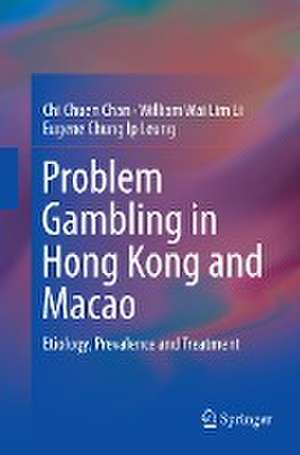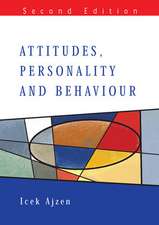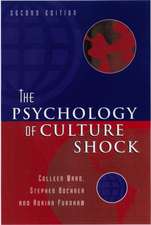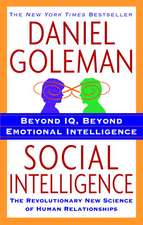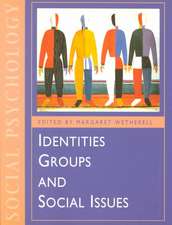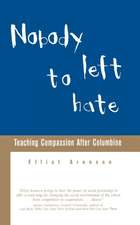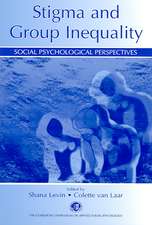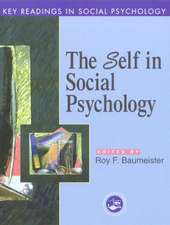Problem Gambling in Hong Kong and Macao: Etiology, Prevalence and Treatment
Autor Chi Chuen Chan, William Wai Lim Li, Eugene Chung Ip Leungen Limba Engleză Paperback – 7 iun 2018
| Toate formatele și edițiile | Preț | Express |
|---|---|---|
| Paperback (1) | 381.21 lei 6-8 săpt. | |
| Springer Nature Singapore – 7 iun 2018 | 381.21 lei 6-8 săpt. | |
| Hardback (1) | 388.52 lei 6-8 săpt. | |
| Springer Nature Singapore – 16 iun 2016 | 388.52 lei 6-8 săpt. |
Preț: 381.21 lei
Nou
Puncte Express: 572
Preț estimativ în valută:
72.94€ • 76.17$ • 60.23£
72.94€ • 76.17$ • 60.23£
Carte tipărită la comandă
Livrare economică 15-29 aprilie
Preluare comenzi: 021 569.72.76
Specificații
ISBN-13: 9789811093203
ISBN-10: 9811093202
Ilustrații: XIV, 161 p. 14 illus.
Dimensiuni: 155 x 235 mm
Greutate: 0.25 kg
Ediția:Softcover reprint of the original 1st ed. 2016
Editura: Springer Nature Singapore
Colecția Springer
Locul publicării:Singapore, Singapore
ISBN-10: 9811093202
Ilustrații: XIV, 161 p. 14 illus.
Dimensiuni: 155 x 235 mm
Greutate: 0.25 kg
Ediția:Softcover reprint of the original 1st ed. 2016
Editura: Springer Nature Singapore
Colecția Springer
Locul publicării:Singapore, Singapore
Cuprins
Chapter 1: The History of Gambling in Hong Kong and Macao. Chapter 2: The State of Gambling in Hong Kong and Macao.- Chapter 3: The Personality of Problem Gamblers in Hong Kong and Macao.- Chapter 4: The Etiology of Problem Gambling.- Chapter 5: The Treatment of Problem Gamblers in Hong Kong and Macao.- Chapter 6: The Review on CBT and a Multi-modal Treatment Model for Problem Gamblers.- Chapter 7: The Challenges and the Future for Problem Gambling in Hong Kong and Macao.
Notă biografică
Dr. Chi Chuen Chan is a professional psychologist with over 18 years of clinical experience. He has served six years as a clinical psychologist at Stanley Prison, Hong Kong and eleven years as a part-time clinical psychologist in Macao. He also spent one academic year as a full-time lecturer and student counsellor at Hong Kong Shue Yan College. His PhD is in Psychology and his field of expertise is forensic and clinical psychology, especially the psychology of gambling. He has taught extensively at universities in Hong Kong and Macao, including the University of Hong Kong, the Open University of Hong Kong, Hong Kong Baptist University and the University of Macao. He has published 2 books, 11 refereed journal articles, 9 conference proceedings and 40 paper presentations for international conferences, including one recent keynote address to the 2nd Macau Medical Association Forum. Except for 1 paper on religious psychology presented in Moscow in 2012, all publications are on thepsychology of gambling and the treatment of gambling disorder. He is also the Managing Editor of the Asian Journal of Gambling Issues and Public Health. A Yale Divinity School graduate and Yale Research Fellow (summer, 1995), Dr. Chan is a research fellow with the Mother Mary Social Studies Centre in Macao, a member of Division 12 (Society of Clinical Psychology), American Psychological Association and is presently serving as visiting professor at the University of St. Joseph in Macao. He is also a member of the adjunct faculty at Upper Iowa University’s Hong Kong campus.
Trained at Hong Kong Polytechnic University (2001), William Wai Lim Li is a professional physiotherapist with over 14 years of practice in Hong Kong. His more prominent services include serving as a physiotherapist in the elderly services of Caritas Hong Kong and Tung Wah Group of Hospitals for more than eight years. William has extensive experience in developing rehabilitation programs for geriatric people living in community and residential settings. He completed his Master’s degree in Geriatric Rehabilitation at Hong Kong Polytechnic University (2005). In addition to his training in physiotherapy, William has a Bachelor’s degree in Psychology and a professional diploma in Counseling and Health Psychology from Upper Iowa University (Hong Kong campus) and the Open University Hong Kong respectively. A registered gambling counsellor, his research interests are physical and mental health among psychiatric patients living in long-stay care homes and problem gambling in Hong Kong. Since 2011, he and his mentor, Dr Chi Chuen Chan, have published several conference papers and journal articles in this research area. He has presented papers at international conferences on gambling in Macao (November 2012) and Beijing (October 2011). He is also a co-author of the Chinese book The Psychology of Gambling, published by the Mother Mary Social Studies Centre of Macao in April 2014.
Eugene Leung finished his first degree in Computer Science and Statistics (University of Toronto) in 1999 and his second degree in psychology at Upper Iowa University in 2011. In 2012, Eugene joined Dr. Chan’s research team. At present, he is a government worker in social services.
Trained at Hong Kong Polytechnic University (2001), William Wai Lim Li is a professional physiotherapist with over 14 years of practice in Hong Kong. His more prominent services include serving as a physiotherapist in the elderly services of Caritas Hong Kong and Tung Wah Group of Hospitals for more than eight years. William has extensive experience in developing rehabilitation programs for geriatric people living in community and residential settings. He completed his Master’s degree in Geriatric Rehabilitation at Hong Kong Polytechnic University (2005). In addition to his training in physiotherapy, William has a Bachelor’s degree in Psychology and a professional diploma in Counseling and Health Psychology from Upper Iowa University (Hong Kong campus) and the Open University Hong Kong respectively. A registered gambling counsellor, his research interests are physical and mental health among psychiatric patients living in long-stay care homes and problem gambling in Hong Kong. Since 2011, he and his mentor, Dr Chi Chuen Chan, have published several conference papers and journal articles in this research area. He has presented papers at international conferences on gambling in Macao (November 2012) and Beijing (October 2011). He is also a co-author of the Chinese book The Psychology of Gambling, published by the Mother Mary Social Studies Centre of Macao in April 2014.
Eugene Leung finished his first degree in Computer Science and Statistics (University of Toronto) in 1999 and his second degree in psychology at Upper Iowa University in 2011. In 2012, Eugene joined Dr. Chan’s research team. At present, he is a government worker in social services.
Textul de pe ultima copertă
This book critically examines the psychology of gambling in Hong Kong and Macao. Covering the history of gambling and its development in the two jurisdictions, it highlights the prevalence and status quo of problem gambling, the theoretical perspectives on the etiology of gambling disorder, and the treatment of problem gambling. The book also introduces a personality and pathways development model of Chinese problem gamblers and concludes with outlooks on the future of gambling in Hong Kong and Macao.
Caracteristici
Presents a scholarly work on the psychology of Chinese problem gamblers Critically examines the personality of gamblers and pathways development of Chinese problem gamblers Elaborates on the history of gambling in Hong Kong and Macao Emphasizes both theoretical foundations and practical applications to gambling psychology Uses a multi-modal treatment model as the main treatment model for problem gambling Includes supplementary material: sn.pub/extras
